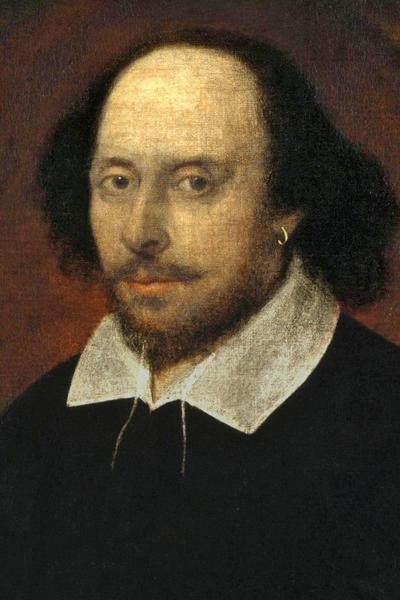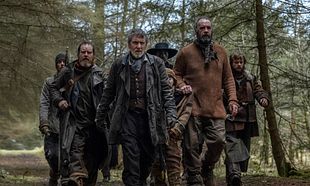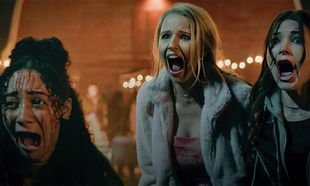Macbeth (Denzel Washington), having defeated the Thane of Cawdor, plots to murder Duncan (Brendan Gleeson) with his wife Lady Macbeth (Frances McDormand) and install himself as King of Scotland after being prophesised by three witches (Kathryn Hunter). In doing so, he starts a chain of events that will lead him further into murder and madness...
As anyone who's studied the Scottish play in the Leaving Cert will tell you, the story isn't short on murders or ghosts. Much of the cinematic adaptations of it have played on this aspect. While some have heightened the violence, like Jed Kurzel's adaptation with Michael Fassbender, while have others, like Roman Polanski's, have zeroed in on the bloody murder of it. Joel Coen's adaptation stands in stark contrast to these, not just because of his use of black-and-white, but in how he dials up the darkened mystery of it all.
Some of the stand-out scenes feature Denzel Washington as the mad king, yes, but it's more him standing in awe of Kathryn Hunter, who plays all three of the Weird Sisters. Hunter's physical frame warps and her voice croaks to portend dire murder, with the camera utterly transfixed by it all. Her jet-black eyes are mesmerising and frightening, and when she appears to deliver her twisted prophecies, the whole movie takes on the air of an Ingmar Bergman-inspired ghost story like 'The Seventh Seal', or even Orson Welles' own adaptation. Each of the cast, from one-scene wonders like Stephen Root as the porter or Jefferson Mays as the doctor, are more than equal to the text. Frances McDormand's Lady Macbeth underplays the role, only allowing herself a moment to really rear up on it. Denzel Washington, meanwhile, gives Macbeth an air of almost detached solemnity until the very end when he's 'Training Day' Denzel against Corey Hawkins' Macduff.
Joel Coen's direction is sharp and pointed. While some scenes have been excised and condensed, the text is largely adhered to. Interestingly, 'The Tragedy of Macbeth' features a co-editor in Lucian Johnston, who previously cut Ari Aster's 'Midsommar' and 'Hereditary' and that influence is visible here. You get the sense that Joel Coen was looking for a horror editor's eye here, and it shows. The violence and the mystery are drawn out like a knife, and the transitions from scene to scene are done with the help of the all-pervasive fog and smoke that clouds Dunsinane. Equally, Carter Burwell's score and the sound design adds to this other-worldly feeling. The stage and production design are made up of geometry, long black corridors, and tall windows in which the mists and fogs cover.
Yet, for all of this exquisite craftmanship, 'The Tragedy of Macbeth' feels less human by other adaptations. It is more rigid and sturdy, yes, but it has none of the ambiguity or the haziness. It sacrifices naturalism for austere staginess, and shadows for exactitude. Obviously, people's own mileage varies and many will no doubt be enriched by how Joel Coen's adaptation sets down the text in black-and-white. Still, 'The Tragedy of Macbeth' is a remarkable piece of work, one that can comfortably stand as a fresh benchmark for Shakespeare adaptations.
















































































